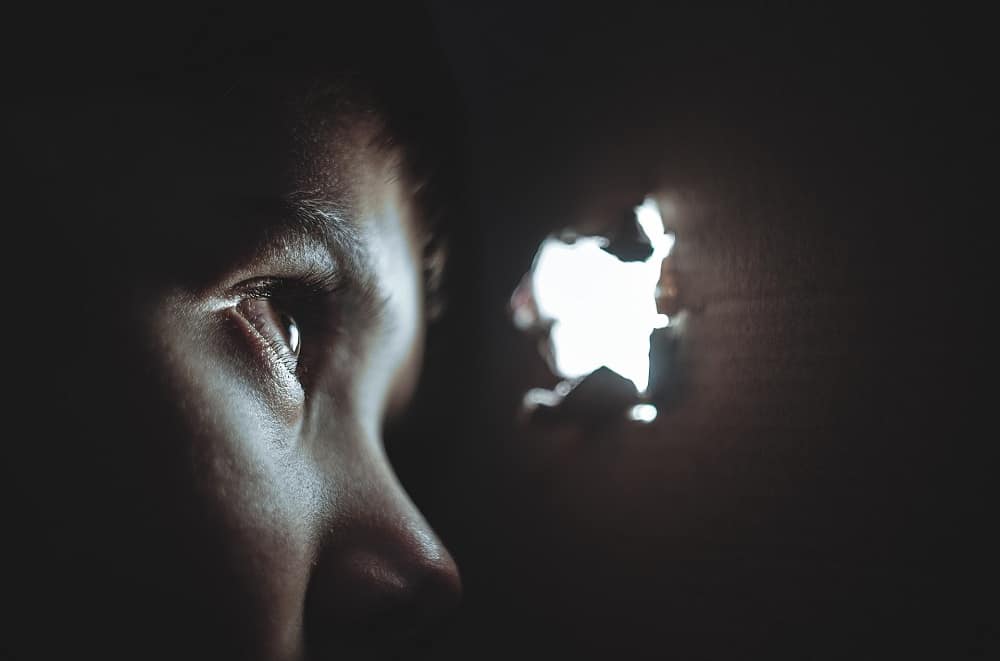Fear is very common, and anyone who says they aren’t afraid of anything are probably lying to you or to themselves. I’m afraid of frogs. Seeing pictures of them make me shudder and seeing one near me can make me panic. I’m also afraid of failing. I’ve built a reputation for being successful in school until my career, and the thought of people seeing me fail either pushes me to do better or crash into a bundle of nerves.
The point is, each of us have our own fears, rational fears and irrational phobias, and how we handle our reaction towards it. While your emotions are valid, it is important to recognize fears that are real and likely to occur at the right time for the right reason, and fears that are a bit out of touch with reality and only likely to cripple a person physically and mentally. These are the rational and irrational fears.
In this article, we delve into psychology to tell the difference between rational and irrational fears, the difference between the two, and how either can affect your physical and mental health. If you believe you have a mental condition that hinders your ability to think rationally, seek counselling or psychiatric help to be diagnosed and given the appropriate treatment.
Differentiating Rational and Irrational Fear
The main differences between rational and irrational fear involve two factors: the likelihood and logic of your fear coming to fruition; and your body’s reaction towards the fear. And by determining whether or not your fear is rational or irrational, it can help you take a step further towards facing these fears head-on.
What is Rational Fear
Rational fear is one where your fear is something that can harm you or someone you care about. If you’re afraid when your kids play outside because you live on a busy street, the fear is rational because they’re likely to get hurt if they’re not careful or a driver doesn’t see them until it’s too late.
Calling rational fears “realistic fears” may be true, but it’s not accurate if you’re comparing it with rational fears. It’s possible to be afraid of water on both cases, but if you’re on a rickety boat in the middle of an ocean and get caught in the storm, your fear of drowning is rational. But if you’re in your shower and are afraid to turn on the water because you’re afraid of drowning, then that becomes an irrational fear.
Here are some examples of rational fears:
- Fear of getting stuck in an elevator while riding a very old unit
- Losing your home because you haven’t been paying your bills and rent for a while
- Your neighbor’s loud and aggressive dog startles you when it barks
- Getting attacked by a bear while hunting in a bear-filled forest
- Failing the only college you applied to
Human nature has an instinct for survival, so when we see or feel something that triggers our fear, that translates to a physical or mental response. It is a logical fear with a presence that rationally triggers the fear. Whether or not you admit it, your body can sense danger and makes you feel fear, and the reaction to your body and mind says how well you react to those fears.

What Does an Irrational Fear Mean?
Irrational fear is when your fear something that is very unlikely to happen. The fear appears when there’s no actual threat or reason.
The same fears mentioned under rational fear can be considered irrational fear if the context or the reason to fear is highly unlikely. It’s a rational fear to be afraid of getting attacked by a wild bear if you’re in a forest with bears, but if you’re afraid of bears and live in a penthouse in the middle of the city and don’t want to go out of your building because you’re afraid a bear might attack you, it becomes irrational.
Irrational fears aren’t just absurd fears. What separates these fears from rational fears is that the amount of fear or reaction you have is exaggerated, as what you fear is highly likely to be harmless or has a low risk of occurring. Some examples include:
- Fear of clowns in a children’s party
- Losing your home because an earthquake will swallow your home whole
- Your neighbor’s loud cat can rip you to shreds (cat scratches can hurt, but thinking a regular-sized domestic cat can kill you is exaggerating the fear that is unlikely to happen)
- Thinking your whole life is over because you failed a test
It’s easy to distinguish rational and irrational fears as separate when we use exaggerated examples such as these. But at times, the idea of splitting fears as rational or irrational may not always be accurate.
A Fine Line Between the Two
Let’s say, for example, your parent or someone you love is diagnosed with a fatal disease. They can die within the next week, or they may die in 10 years – doctors can’t say. The fear of your loved one is rational because the risk of death is there. But at the same time, it’s a given fact that everyone is eventually going to die soon, so it’s irrational to fear for your loved one’s death because we can’t deny the inevitable.
Or, take the failure of failing at work or school. You work hard to excel, but if you see a sudden decrease in your grade, it’s rational to fear it will affect your grades. But at the same time, in the greater scheme of things, your grade for one term of school or a quarter of the work year won’t really make a bump in your life, so it’s also an irrational fear.
The truth is that, sometimes, a fear is both or neither a rational or irrational fear. If what you fear only has a chance of appearing, even if it is logical, it still falls under the definition of both rational and irrational fears. Some fears can be labeled as specifically rational or irrational, but at times, it’s difficult to differentiate the two.
In truth, both fears are valid, especially when they have the same physical and mental effects on your body. The important difference is whether or not your fears drastically affect the way you live.
Are Phobias Rational or Irrational Fear?
The quick answer is that phobias are irrational fear.
Phobias are irrational fear triggered by a specific object or event. They don’t fall under rational fear because rational fear is a reasonable reaction to a potentially dangerous situation, event or item.
What Happens When You’re Afraid?
As mentioned earlier, the survival part of our early human instinct is still a part of our senses, and it’s true for both rational and irrational fears. These are the physical and mental effects of your fear.
Physical Effects
Fear is a form of stress. When your body senses you are scared or stressed, it releases cortisol, a steroid hormone that comes from your adrenal glands. Cortisol flows through your blood to the different parts of your body, preparing several organs for what is known as the fight or flight response.
In the early days, this cortisol was particularly live-saving. When cavemen saw a wild animal like a lion, for example, they fear for their lives, causing stress, which then triggers the adrenal glands to produce cortisol. Their flight or fight response, therefore, is to choose to either run away or fight back. Cortisol prepares your body for either: your heart rate increases so there is more oxygen in your muscles and brain, preventing you from fatigue; your lungs breathe faster to absorb more oxygen. Your eyes see better, while unnecessary body systems like your digestive, urinary, and reproductive systems temporarily slow down to focus your energy with the stressor at hand.
Naturally, after you choose to fight or flight and you’re far away from the danger, your body will slowly return back to normal. Today, now that we aren’t constantly being hunted down by lions, the fight or flight response now has to deal with both physical and mental stressors. Some fears, especially rational fears, can be dealt with because you can face the fear head on, and then your body returns to normal. However, when you’re dealing with irrational and both rational and irrational fears, the idea of facing your fear trigger is much more complex, which could lead to anxiety, which could also lead to other mental conditions.
Physically, when you can’t deal with your fears or you are always afraid, your body will continue to release cortisol, putting your body in a long-term state of flight or fight. Your body is meant to return to its normal state after this response, so when exposed to cortisol for long periods of time, your body can have long-term effects, including diarrhea, nausea, colds, high blood pressure, migraines, asthma, and heart attacks.

Mental Effects
When you can’t really determine the fear and your body’s response to it, you begin to develop anxiety. This is the constant feeling of being worried that something bad is going to happen. In worse cases, anxiety can affect your everyday life, your hobbies, or even your sleeping pattern because your body is always on-edge.
Anxiety has often been linked with depression and other mental conditions. Some people may continue to function even with mental disorders, but if they don’t address their fear and the effects, it could have long-term effects on your health.
Treatment
The best treatment is to face your fears while it is still a mild fear. It’s OK to recognize fear, and it’s OK to be afraid. What’s not OK is letting your anxiety and fear dictate how you run your life. In some cases, people with agoraphobia (the fear of feeling unsafe in public or private spaces) never set foot out of their homes because they feel they’re not safe anywhere. As a result, they develop depression and anxiety; depression because their life is hindered and limited to the corners of their home, and anxiety because they’re always afraid of the outside world.
In severe cases, when these fears are taking over your body, it is necessary to seek medical attention. A psychologist may help counsel you regarding your fears, while a psychiatrist can also do that as well as provide you with medicine to control your anxiety and other mental conditions.
Whether you have rational or irrational fear, if you react to it physically or mentally, it is necessary to face these fears head-on. If you feel like your fear is hindering the way you want to live, talk to a psychiatrist that can talk you through your anxieties, give you proper medicine, and provide you with suggestions on how to help you conquer your fears.




